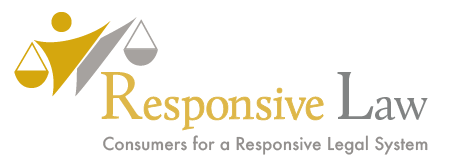New Jersey Modifies Previous Opinion to Allow More Legal Help from Child Advocate Professionals
4/19/2021
by Kaylee Willis
Children with disabilities have specific and unique needs when it comes to their education. Though the Individuals with Disabilities Education Act (IDEA) makes it so that all children with disabilities have access to a free appropriate public education designed to meet their unique needs, there are still many families that struggle to get the services the act entitles them to. The act makes appropriate evaluations, individualized educational plans (IEP), least restrictive environments, and parental participation the right of each special needs child. However, school boards often try to spend as little as possible on providing for children with disabilities, so parents must rely on the legal system to make sure schools provides for their children's needs.
Since lawyers are prohibitively expensive, making it difficult for qualified professionals to participate in the process leaves families with no affordable options for legal guidance. In September, the New Jersey Supreme Court Ethics Committee released an opinion that would make it even more difficult for families to get appropriate help from experts concerning their child’s special educational needs. In response, we submitted a comment which resulted in the New Jersey Supreme Court Committee on the Unauthorized Practice of Law superseding that opinion with one that answered many of our requests.
In response to a grievance regarding a non-lawyer who represents parents and children in special education proceedings, the initial opinion restricted the practices of non-lawyer advocates for parents and students in special education conferences by barring them from “representing” parents or speaking on their behalf in matters regarding IEP’s.
Our comment was made on our behalf by an affected parent, Jim Christy, the parent of a special needs child in New Jersey. After his child was diagnosed with autism in 2007, Jim and his wife sought special education services, but were met with much resistance by the school. Only after changing schools and racking up thousands of dollars in legal bills did he and his wife learn that there were advocates available who, given the complexity of these cases, had more time, experience, and competence to offer than did their lawyers.
We are happy to announce that, in the revised opinion, the committee recognized the overall benefit to parents that advocates provide, and the lack of sufficient demonstrable harm to the public. They declared that while the role of the advocate can be considered the practice of law, it is not the unauthorized practice of law when the non-lawyer has the requisite knowledge or training. Because of the revised opinion, by submitting an application to show their qualifications, non-lawyer advocates are able to represent families in these matters.
We consider this a partial win, since the advocates still may not charge a fee for representation at a hearing. But overall, allowing non-lawyer advocates to operate more freely within the legal system will ensure families like Jim’s better access to affordable legal services.
Kaylee Willis is a policy intern at Responsive Law.
